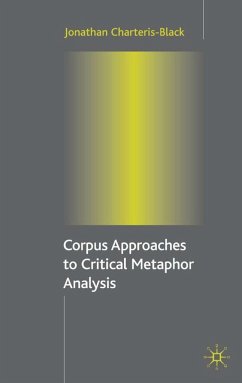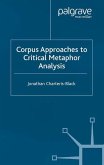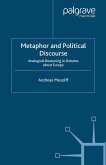In a stimulating and novel approach, this book explains why metaphors are persuasive, suggesting that they are ideologically effective because they are cognitively plausible and evoke an emotional response. 'Critical Metaphor Analysis' is then developed in a series of corpus-based studies in which analysis of collocations provides insight into the cognitive motivation and expressive connotation of metaphor. By unifying traditional and cognitive semantic with pragmatic approaches, the reader becomes aware of the importance of metaphor in persuasive language.
'...this book is a valuable contribution to CDA [critical discourse analysis] but also demonstrates how Cognitive Linguistics can inform interdsciplinary studies of discourse in social and political domains. The analyses themselves are a valuable resource for anyone interested in the relation bestween language and political, religious and economic constructions of society.' - Christopher Hart, Cognitive Linguistics








